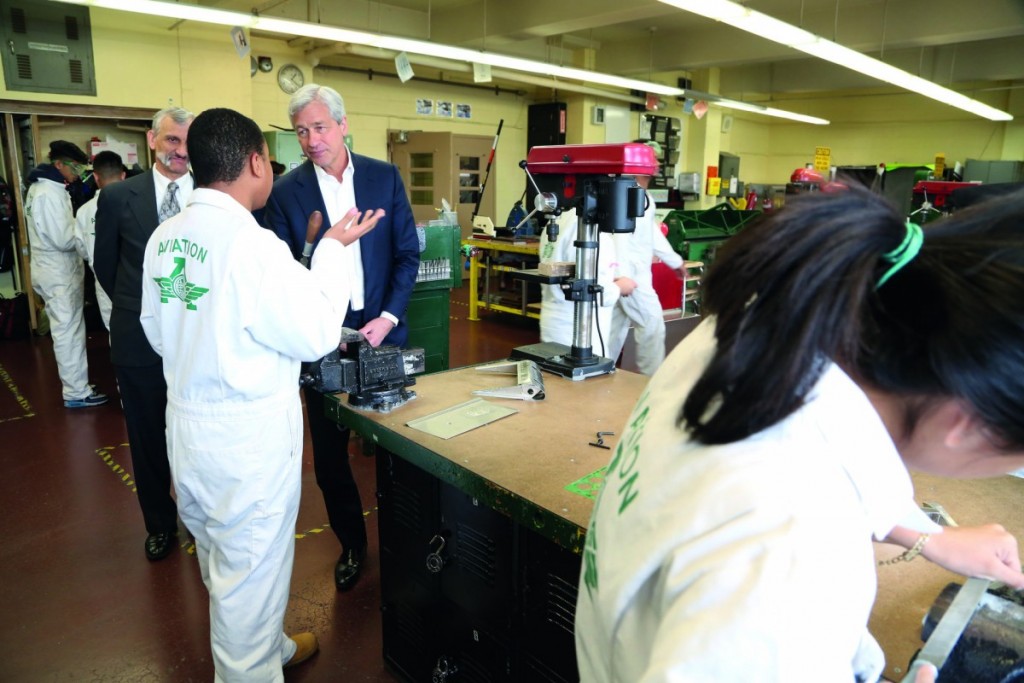By Nicholas Wyman | Forbes | May 11, 2016
When you back up a commitment with $75 million, people tend to pay attention. I’m certainly paying attention to New Skills for Youth (NSFY), the $75 million grant initiative sponsored by JPMorgan Chase to change the way we approach career and technical education in the U.S.
NSFY is a partnership among JPMorganChase, the Council of Chief State School Officers (CCSSO) and Advance CTE. Working together, these business and education leaders want to help young people get the skills they need to find work in challenging, well-paying fields. What has spurred such a high-powered partnership?
Sarah Steinberg, Vice President of Global Philanthropy at JPMorgan Chase , says one factor is the lack of qualified employees for skilled jobs. “We started hearing this from our clients some years back, as the economy was coming out of the 2008 recession. They can’t fill the skilled positions they have available. Which makes it very difficult to plan for the future.”
In fact, one-third of U.S. employers have job openings they can’t fill. At the same time, too many young people can’t find work. As of March 2016, the youth unemployment rate was over 15% for 16- to 19-year-olds, and 8% for 20- to 24-year-olds. So there are jobs and there are unemployed workers. Why aren’t they meeting?
The answer is skills. Skills needed for many of today’s technically oriented jobs in healthcare, manufacturing and IT. Skills that young people simply lack. “We see it in the communities where we work,” notes Steinberg, “Too many young people are getting off track before they even leave high school.”

CCSSO’s Executive Director, Chris Minnich, says state education officials see the same thing. “Looking at the data, we can see that kids aren’t necessarily going to college right away, but they don’t have the skills they need for jobs either. Even if they’re getting certificates, they aren’t prepared, or they’re prepared for jobs that existed 20 years ago.”
New Skills for Youth will help students get skills that match today’s economy via two grant components. The first, overseen by CCSSO and Advance CTE, distributes money directly to states, first for planning (NSFY awarded planning grants to 24 states plus the District of Columbia on March 30), then for implementation, (Around 10 states will receive implementation grants in October.)
Read the full story here:
